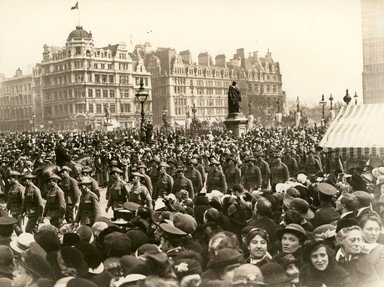Quiz Answer Key and Fun Facts
1. This peppery American president overruled his Secretary of State, the legendary George Marshall, (whom he revered), and his Secretary of Defense, in deciding to recognize the still nascent state of Israel . Who was he?
2. On January 13, 1898, a French newspaper, "L'Aurore" ran, under what has become arguably the most famous headline in history, a controversial story (touching on, among other things, issues of anti-Semitism) by a famous writer. Who was the writer?
3. Though in previous centuries the papacy was viewed as something less than a repository of pro-Jewish sentiment, in the 20th century more than one Pope has taken strong steps to right this unfortunate state of affairs. Which one is believed to have saved perhaps half a million Jews during World War II?
4. What famous convert AWAY from Judaism nonetheless described the Jews as "that rigidly separate and unmixed Bedouin race who had developed a high civilization at a time when the inhabitants of England were going half naked and eating acorns in the woods" and "an unmixed race of a first-rate organization... the aristocracy of nature"?
5. Raised as a Mennonite, this giant among artists painted many moving scenes from the Old Testament as well as the New. He lived among Jews, painted them extensively, and even romanticized them to some degree; his "Jewish Bride" has to be counted as one of the most moving paintings in history. Who was he?
6. A famous observer once wrote that the Jew "is not a loafer, he is not a sot, he is not noisy, he is not a brawler nor a rioter, he is not quarrelsome. In the statistics of crime his presence is conspicuously rare... (he) is not a burden on the charities of the state nor of the city... His race is entitled to be called the most benevolent of all the races of men." Who wrote this?
7. Criticized by many for writing a book about the Holocaust which dealt with a non-Jewish (Polish Catholic) Auschwitz survivor, this Protestant son of Virginia, considered by some the greatest living American writer of fiction, nonetheless wrote what is probably the greatest paean to 1940's Jewish Brooklyn that has ever been written. Who he?
8. A plausible argument can be made that this observant Methodist Welshman, rather than Herzl, was the most influential Zionist in history. He appointed Lord Balfour as his foreign secretary in 1916; Balfour issued his momentous declaration a year later. Who was he?
9. The history of the Jews in Poland has been a long and often sad one. Nonetheless, several Polish gentiles down through the years have earned warranted distinction for their decidedly pro-Jewish leanings. In the 14th century, there was Kazimierz the Great; in the 18th, Tadeusz Kosciuszko. Who amongst the Poles most prominently continued this trend in the 20th Century?
10. One of the greatest convocations of philo-Semites took place after WWI in Paris in 1919. Woodrow Wilson was of course present on behalf of the United States. What was his particular (and unprecedented) philo-semitic credential?
Source: Author
coolupway
This quiz was reviewed by FunTrivia editor
bloomsby before going online.
Any errors found in FunTrivia content are routinely corrected through our feedback system.
